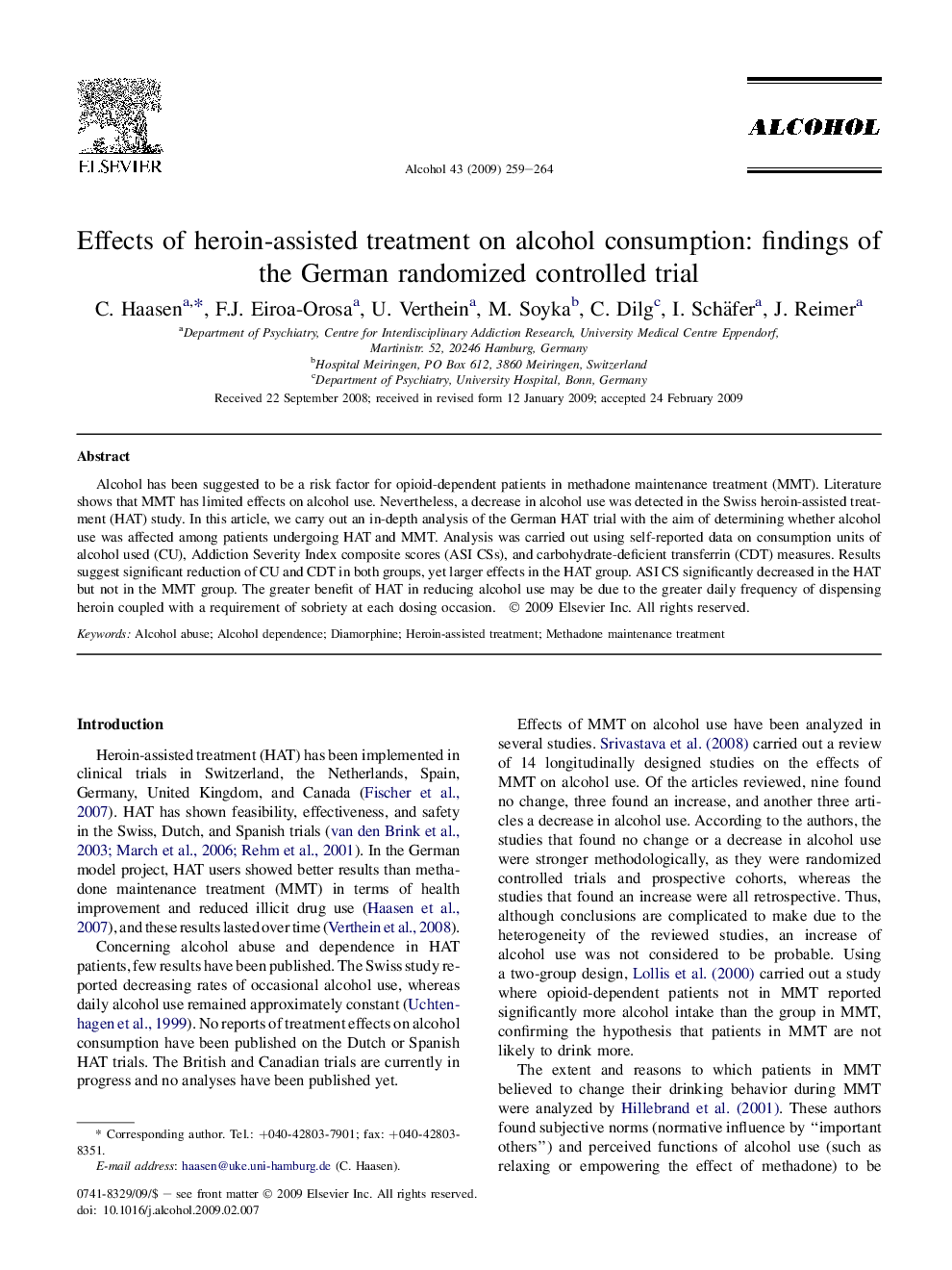| Article ID | Journal | Published Year | Pages | File Type |
|---|---|---|---|---|
| 1067231 | Alcohol | 2009 | 6 Pages |
Alcohol has been suggested to be a risk factor for opioid-dependent patients in methadone maintenance treatment (MMT). Literature shows that MMT has limited effects on alcohol use. Nevertheless, a decrease in alcohol use was detected in the Swiss heroin-assisted treatment (HAT) study. In this article, we carry out an in-depth analysis of the German HAT trial with the aim of determining whether alcohol use was affected among patients undergoing HAT and MMT. Analysis was carried out using self-reported data on consumption units of alcohol used (CU), Addiction Severity Index composite scores (ASI CSs), and carbohydrate-deficient transferrin (CDT) measures. Results suggest significant reduction of CU and CDT in both groups, yet larger effects in the HAT group. ASI CS significantly decreased in the HAT but not in the MMT group. The greater benefit of HAT in reducing alcohol use may be due to the greater daily frequency of dispensing heroin coupled with a requirement of sobriety at each dosing occasion.
